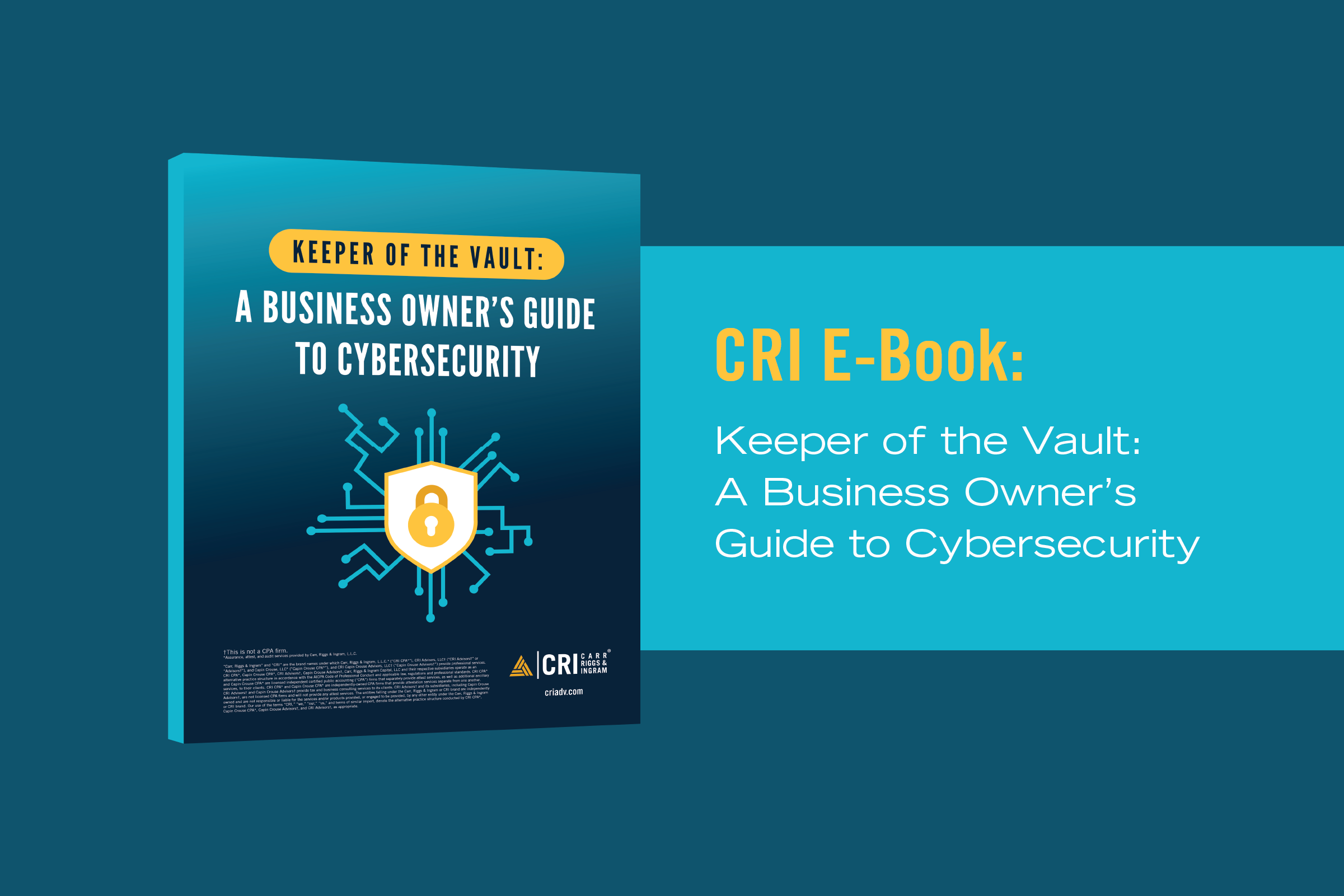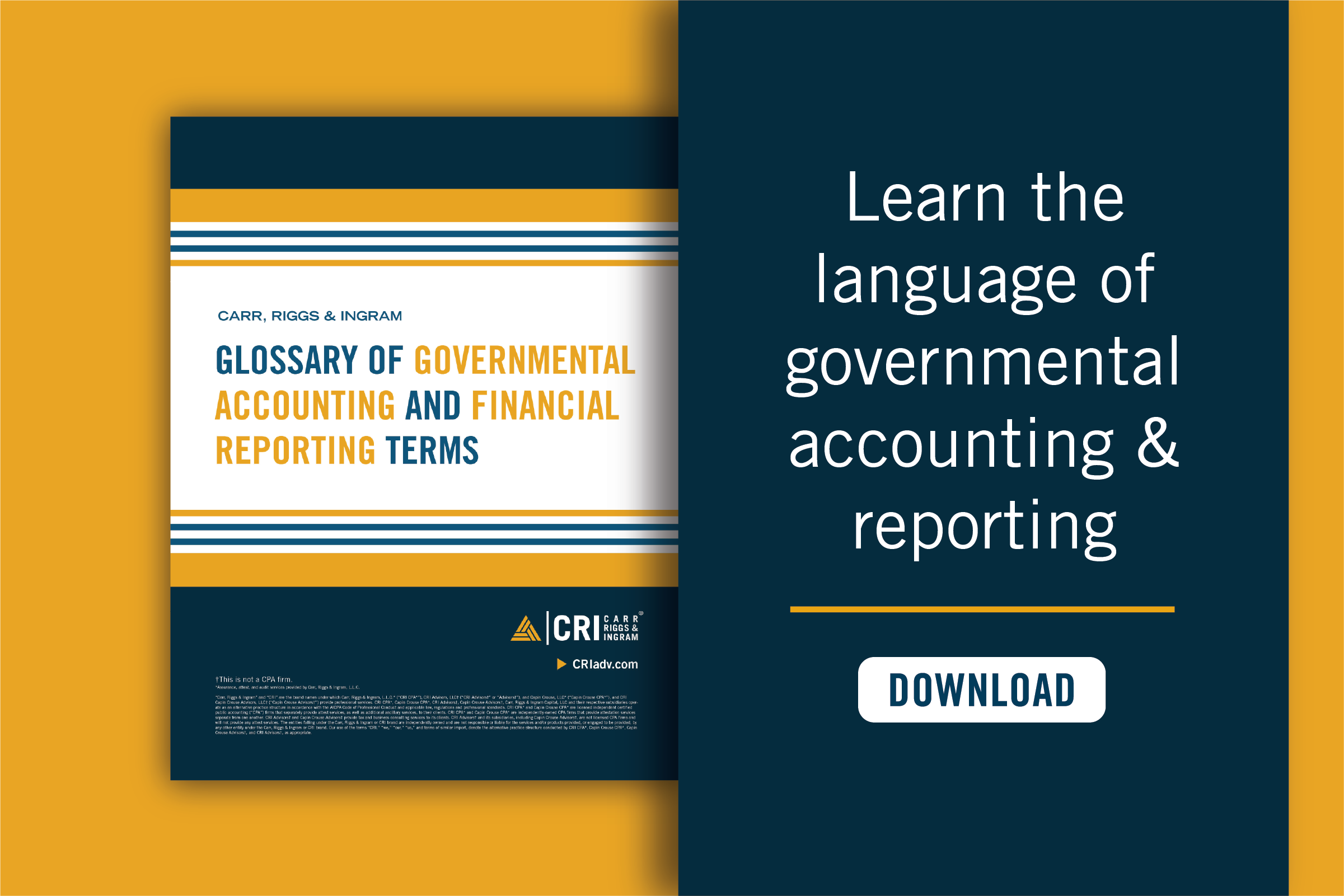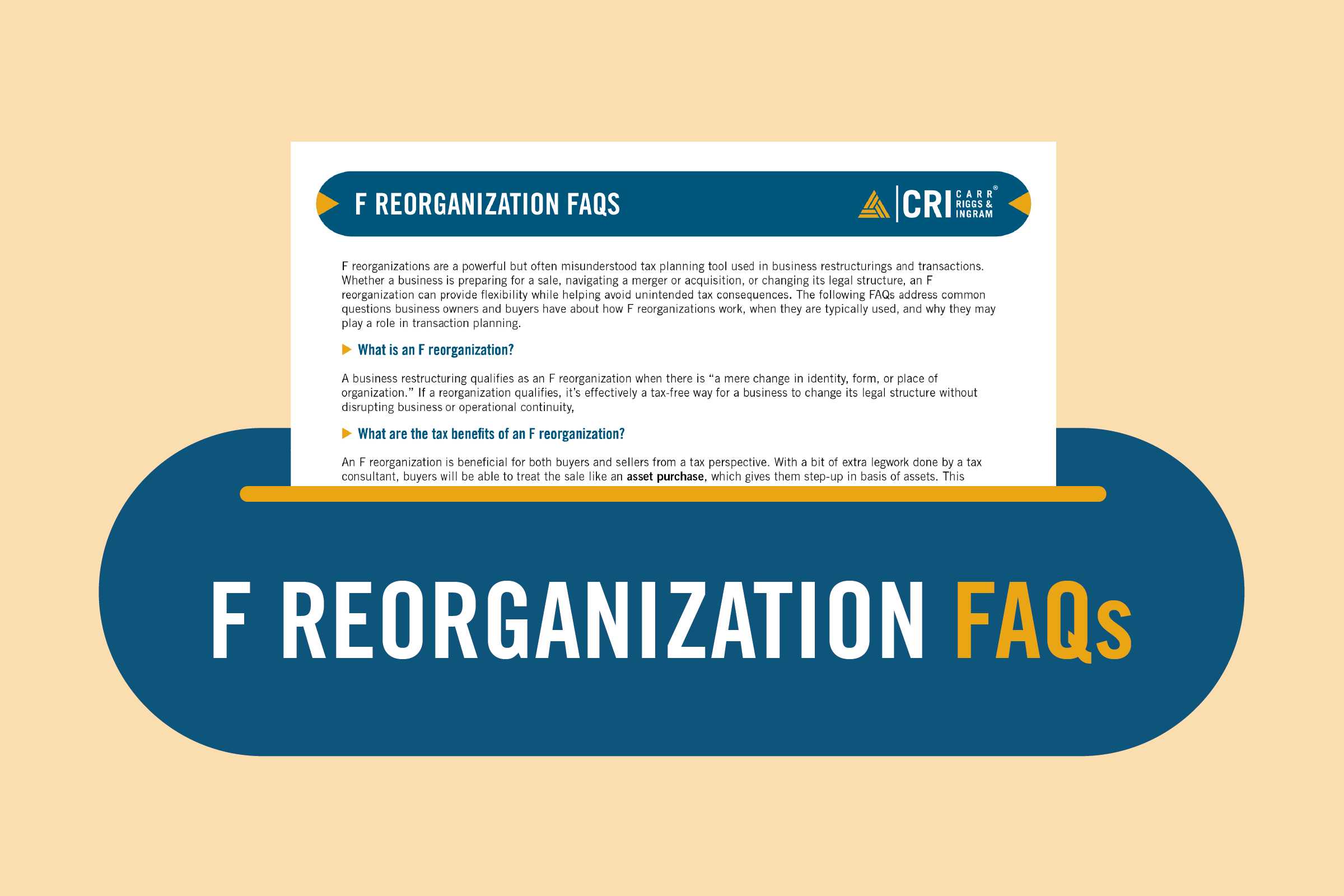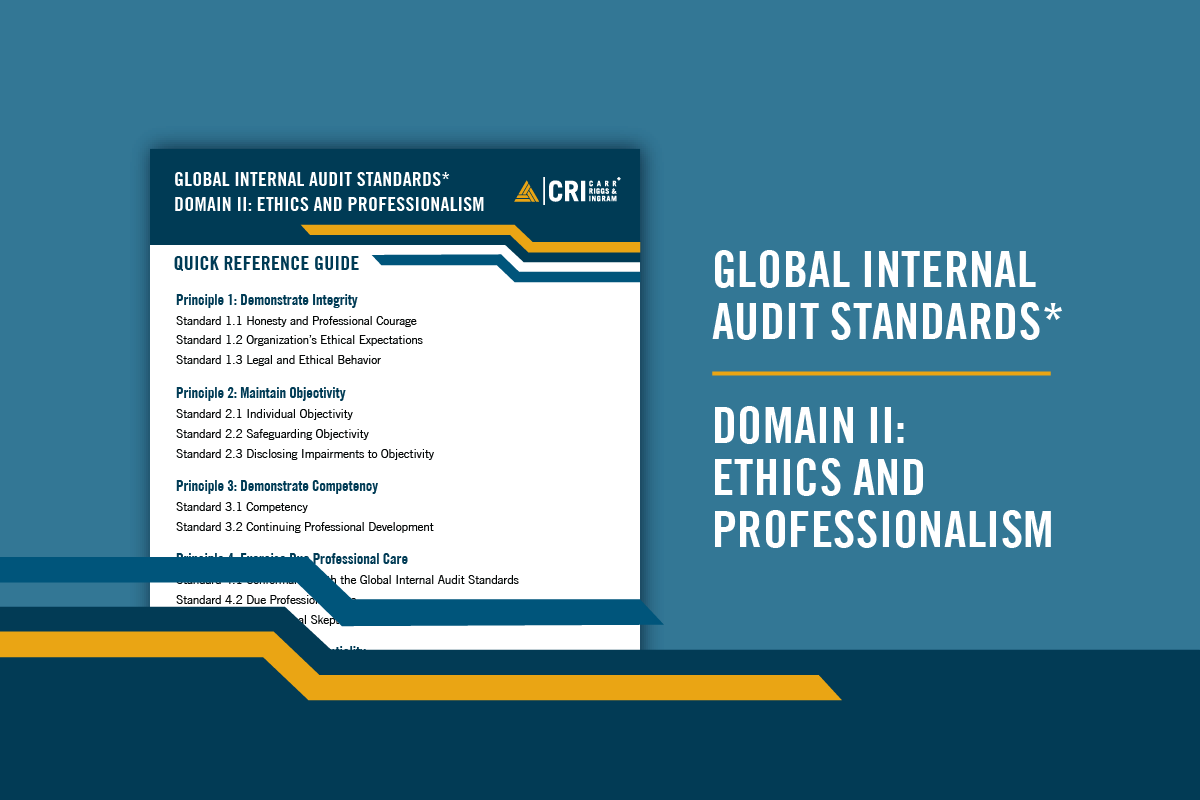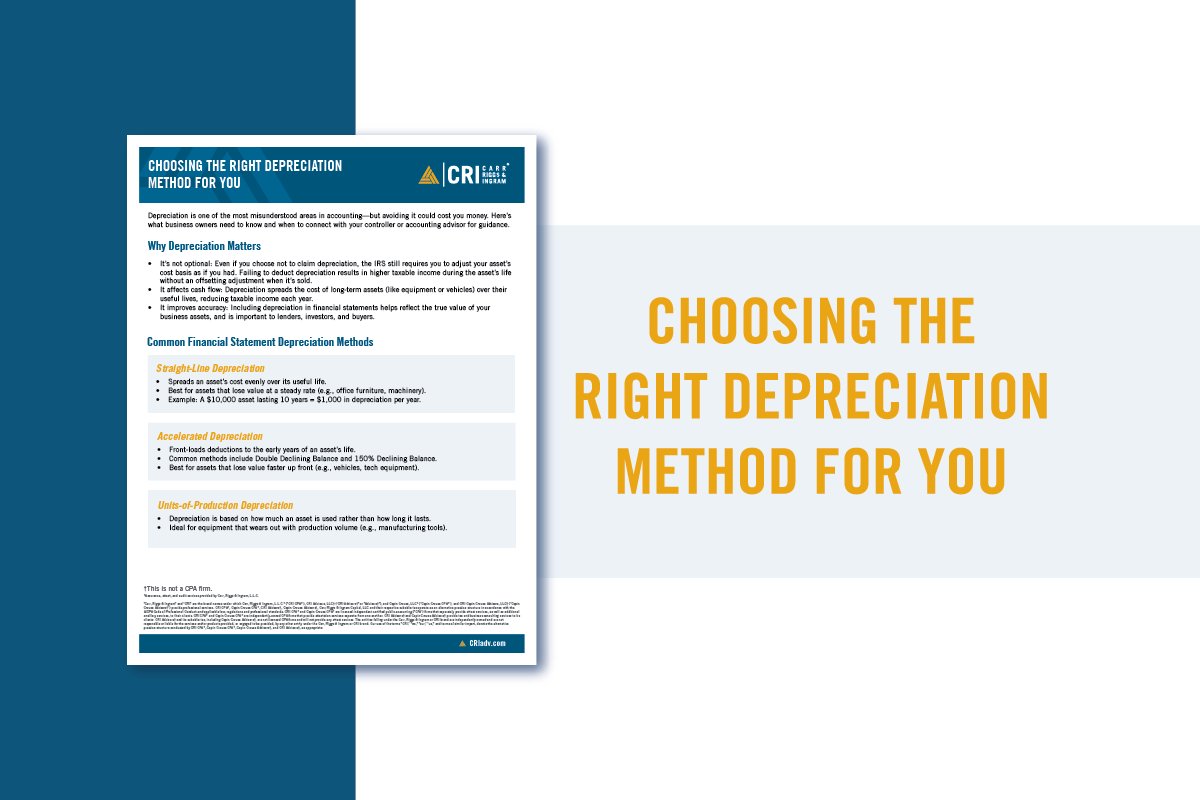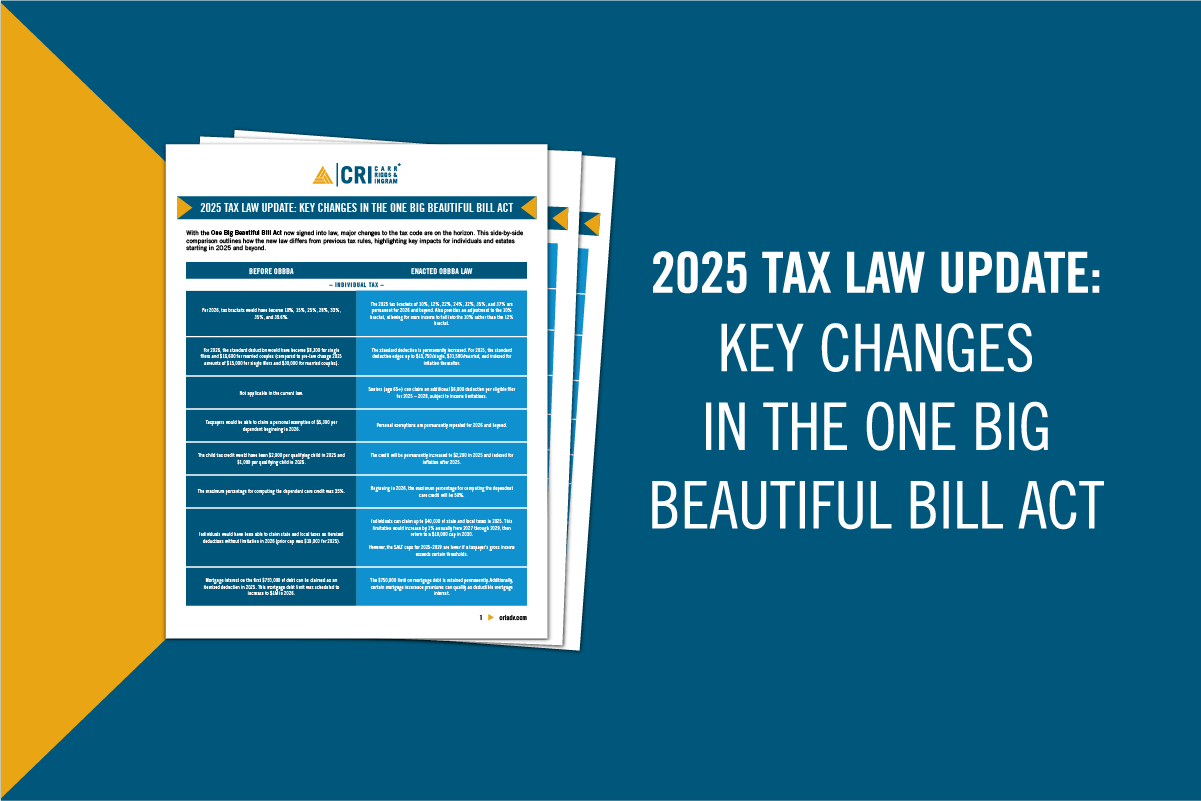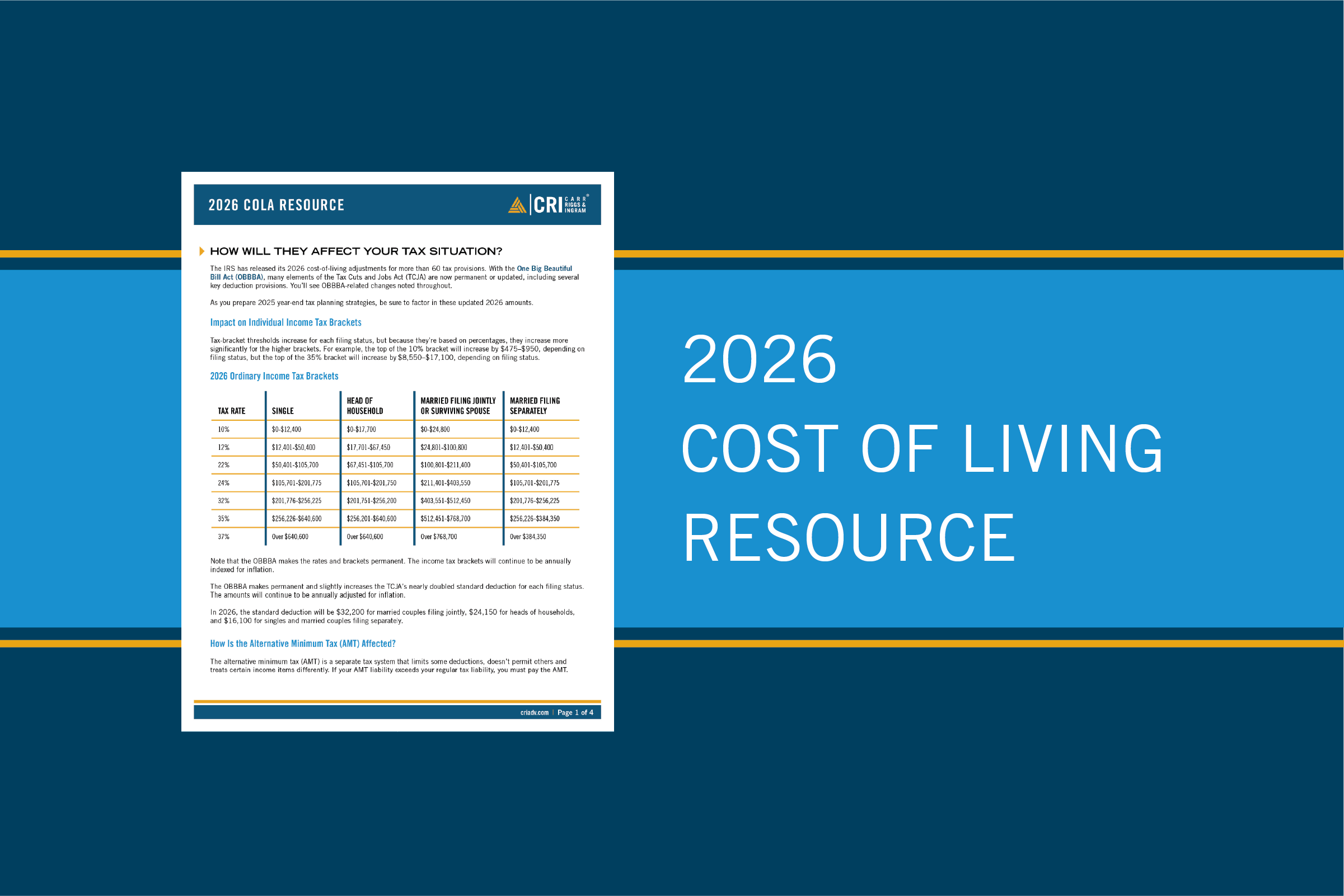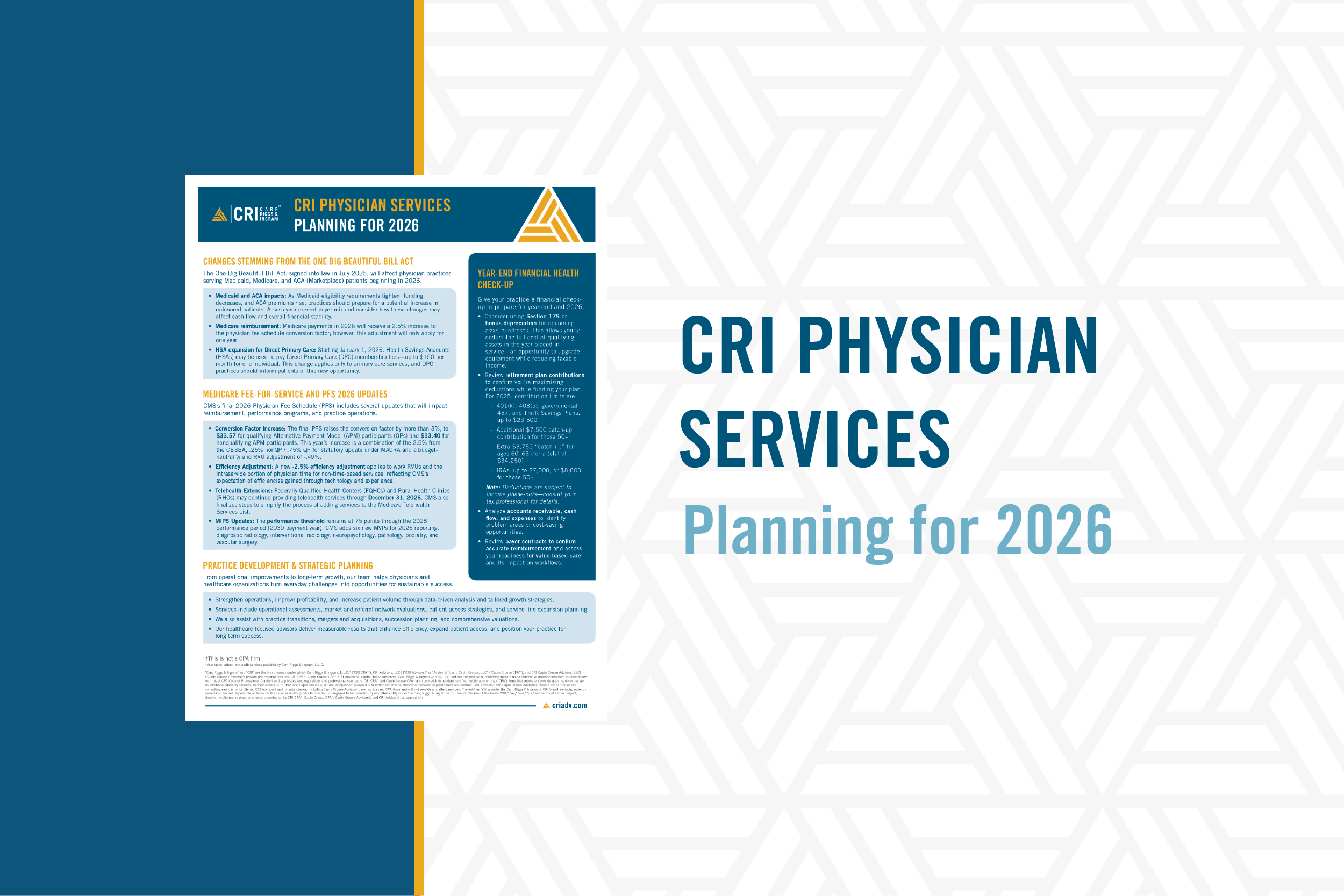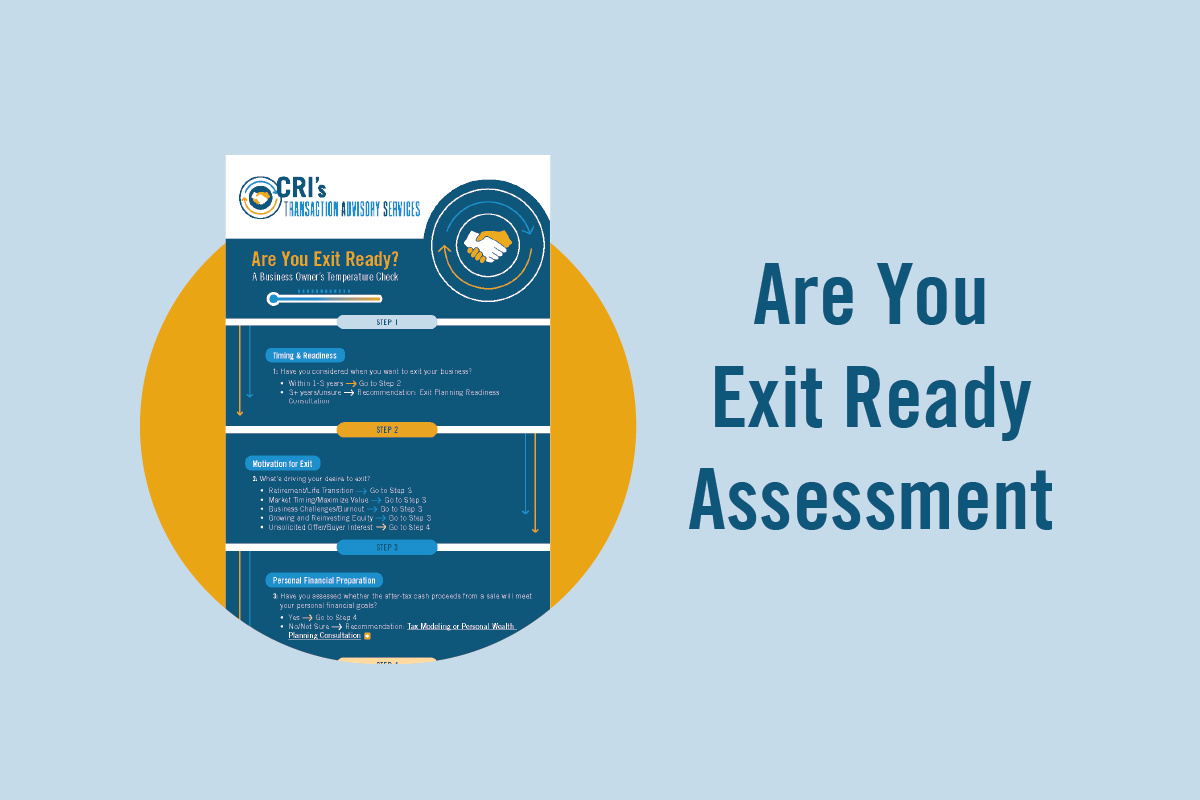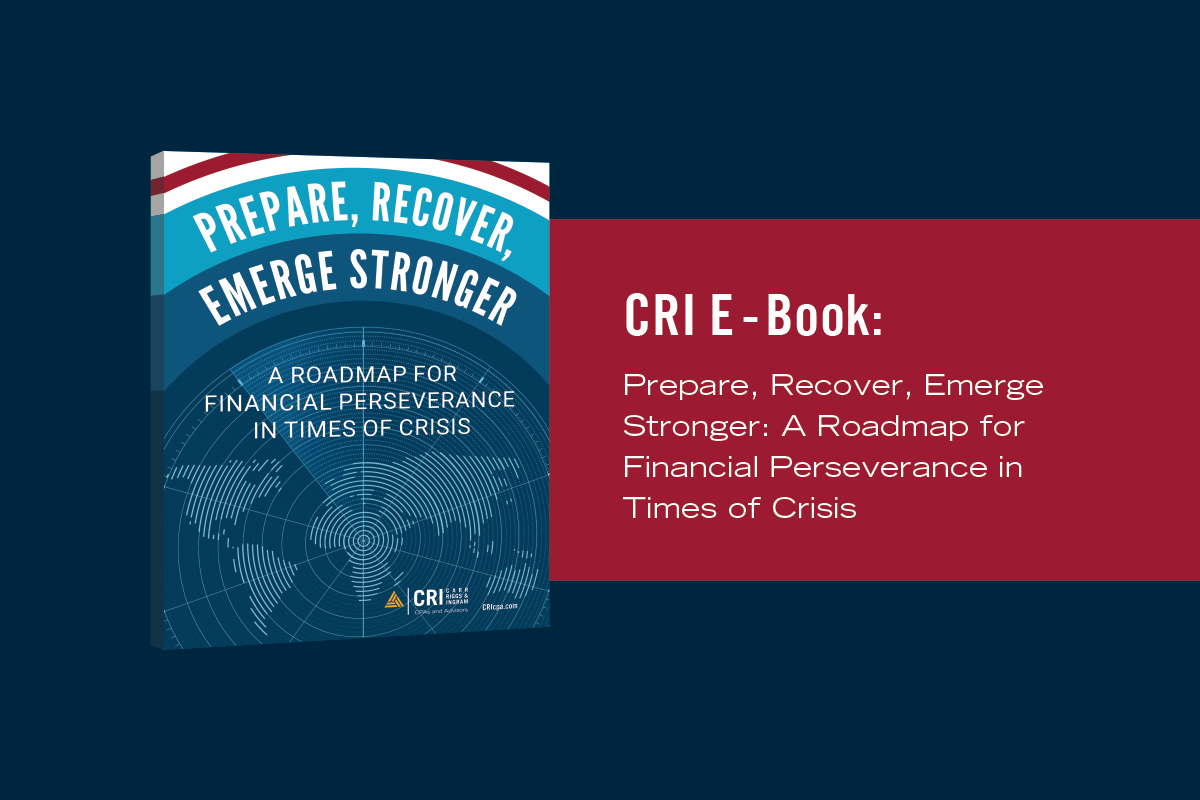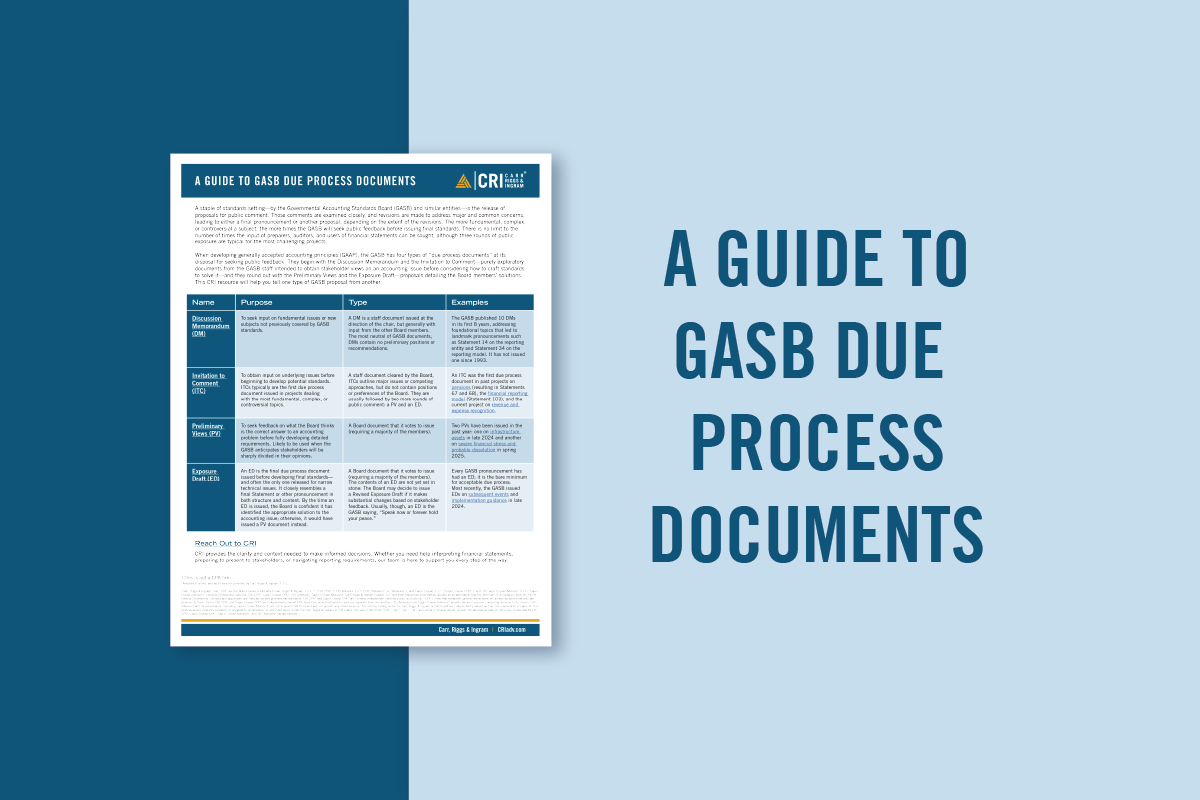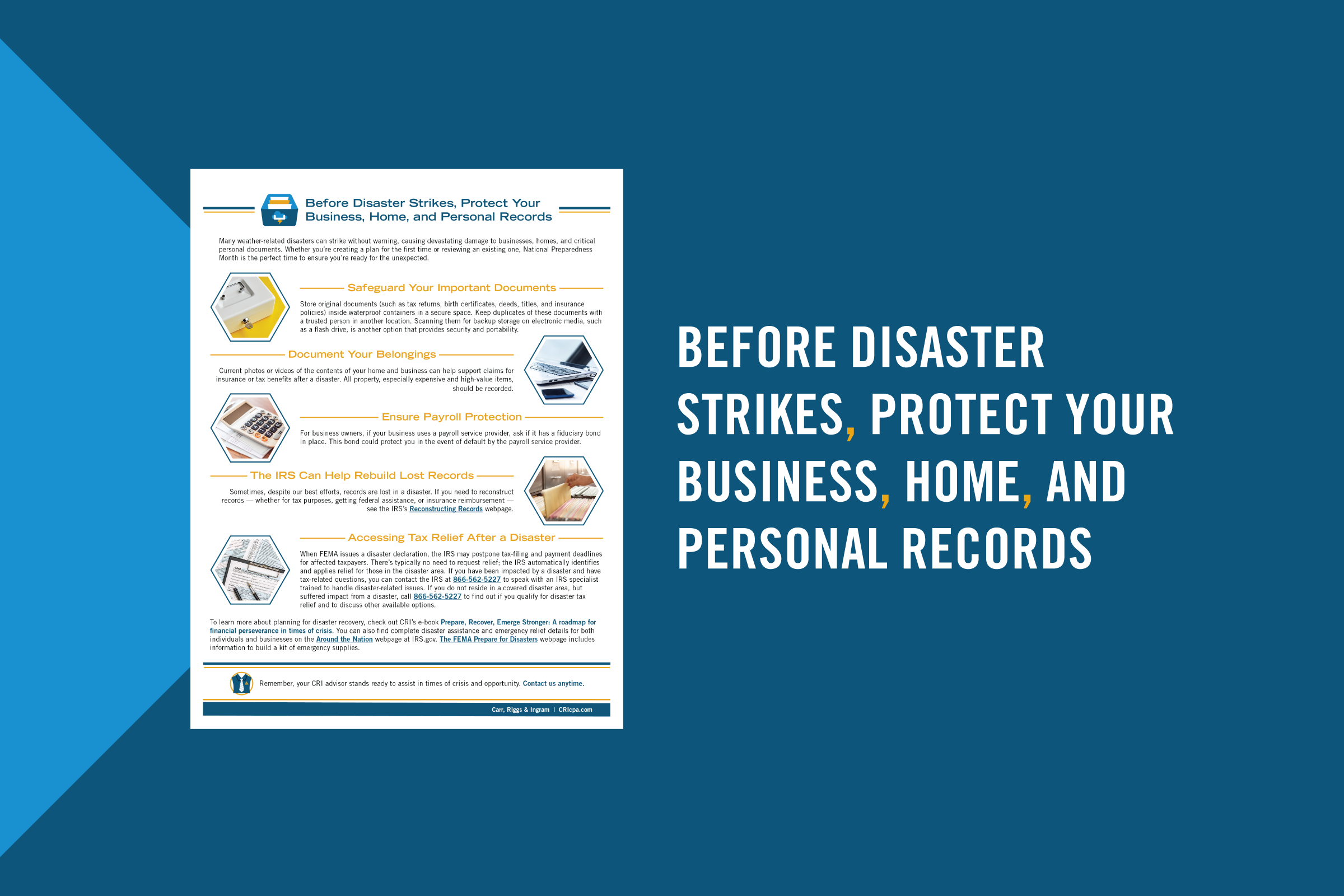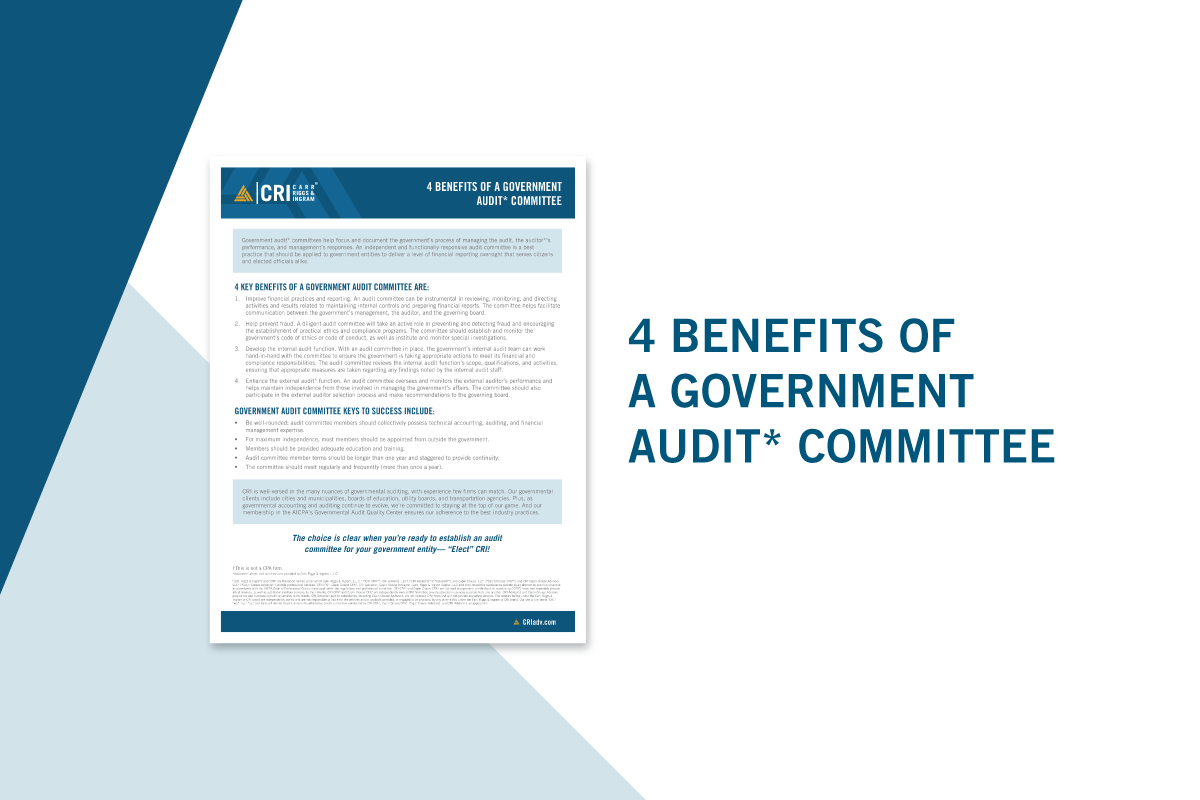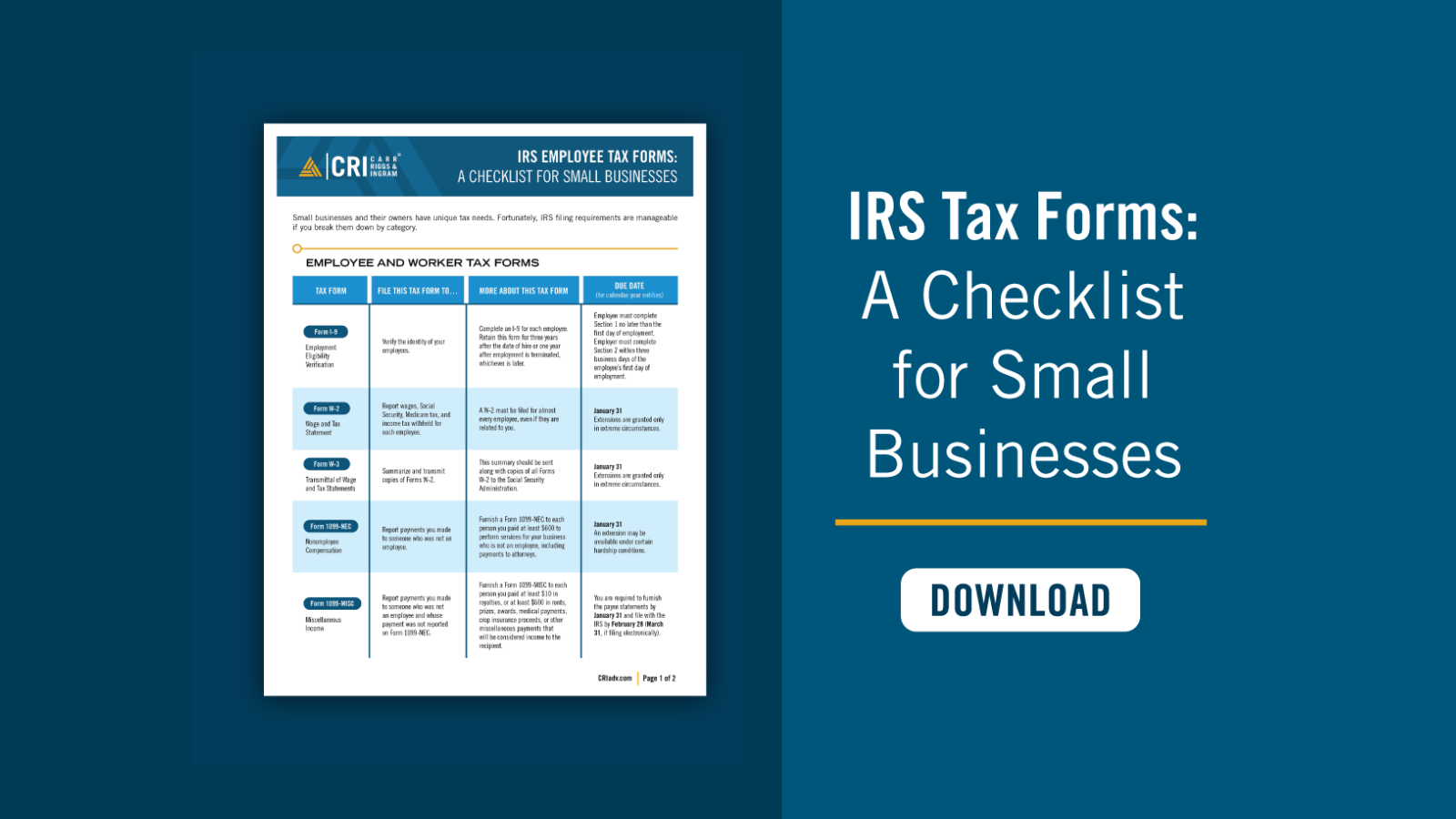5 Conversations Every Business Owner Should Be Having With Their Accountant
- Contributor
- Dana M. Alexander
Oct 8, 2025
Small and mid-sized businesses are navigating an environment where challenges come from all sides. Labor shortages, rising costs, complex compliance demands, and shifting global markets can quickly erode margins and disrupt operations. But with the right financial guidance, these challenges can also become opportunities for greater resilience and growth.
At CRI, we’ve seen firsthand how proactive accounting conversations help business owners make informed decisions that protect margins, reduce risk, and support long-term success. Here are five of the most important conversations every business owner should have with their accountant to gain a clearer view of risks and opportunities and to shape strategies that balance immediate needs with future growth.
1. Planning for Ownership Transitions
One of the most critical conversations you can have with your accountant is about succession planning, yet it’s also one of the most commonly postponed. Ownership transitions, whether due to retirement, sale, or unexpected events, carry significant implications for continuity, taxes, and value preservation. Waiting until a change is imminent often reduces your options and increases costs, leaving your business vulnerable at a time when stability is crucial.
By starting this discussion early, you can explore entity structures that protect value, navigate estate and capital gains tax considerations, and design governance strategies that align with family or partner expectations. Discussing these issues with your advisor provides the clarity and confidence needed to protect both your business and your legacy in the long term.
2. Staying Ahead of Compliance
Compliance rarely feels urgent—until it becomes a problem. A conversation with your accountant about compliance can highlight upcoming regulatory changes, reveal gaps in your internal processes, and ensure you’re meeting deadlines before they pile up. Tax rules, reporting requirements, and industry-specific regulations are constantly evolving, and businesses that fall behind often face penalties, additional costs, or reputational risk.
Your advisor can help you assess whether your internal controls are strong enough, align your documentation with regulatory expectations, and spread compliance costs over time rather than absorbing them all at once. By keeping this conversation ongoing, you can stay ahead of the curve and focus your energy on growth rather than damage control.
3. Balancing Labor Costs with Retention
Labor costs are often the single most significant expense for a business, and in today’s competitive talent market, they’re also one of the most unpredictable. A candid conversation with your accountant about workforce strategy can help you understand how rising wages, benefits, and recruitment costs impact cash flow—and how to strike the right balance between competitive compensation and financial sustainability.
Together, you can project long-term labor costs, explore different staffing models, and design retention programs that align with both your financial capacity and employee expectations. These discussions not only shed light on the actual cost of your workforce but also ensure that your investments in people strengthen, rather than strain, your business.
4. Protecting Margins in a Volatile Market
Few issues keep business owners up at night more than shrinking margins. Inflation, supply chain instability, and tariffs don’t just increase costs—they ripple through pricing, inventory, and cash flow. A conversation with your accountant about margin protection can help you prepare for these pressures before they cut too deeply into profitability.
This dialogue might include running forecasts that test different cost scenarios, reevaluating your pricing strategies, or identifying credits and deductions that can soften the blow of unexpected expenses. By engaging in these conversations regularly, you equip your business with the insight and strategies needed to preserve profitability even in uncertain times.
5. Simplifying Multi-Entity Operations
As businesses grow, many expand into multiple entities, divisions, or ventures. While diversification can be a strength, it often adds layers of complexity that can obscure the true financial picture. Talking with your accountant about how your operations are structured can reveal opportunities to simplify, consolidate, or optimize.
Your advisor can help you create consolidated reporting that clarifies profitability and cash flow across all entities, ensure intercompany transactions are properly managed, and advise on whether separating or combining operations provides the best tax and liability outcomes. These conversations give you the complete visibility you need to make confident, strategic decisions about your growing business.
Turning Challenges into Strategy
While these issues can feel overwhelming, they don’t have to be. With a proactive accounting partner, businesses can anticipate challenges, strengthen decision-making, and create strategies that support both short-term resilience and long-term success.
Contact your CRI advisor today to discuss how these issues impact your business and the opportunities available to transform complexity into clarity—and ensure your business is prepared not just for today, but for the future.



